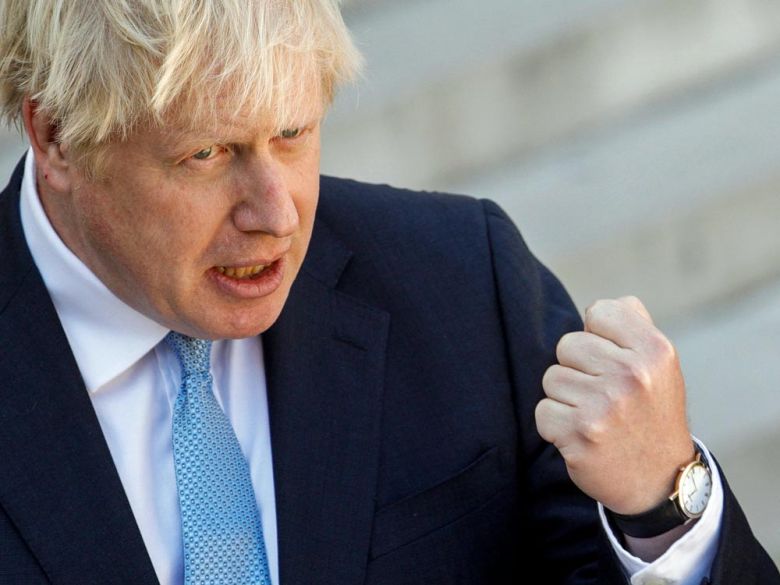No one in this country should underestimate the significance, for Canada and the world, of British prime minister Boris Johnson’s ingenious measure for assuring the end of the crisis of immobilized government that has possessed the United Kingdom in the last three years. In 2016, 52 per cent of a heavy turn-out of British voters chose to leave the European Union. The minority voted to remain — there was no option on the ballot for a compromise. The stark choice was selected by former prime minister David Cameron, because he was convinced that there was no chance that Britain, whatever its level of grumbling, would choose to “crash out” of the association with Europe in which the political elites were comfortable.
The British are the wrong electorate to bluff with such an artificially polar choice. The European Union has had the habit of simply ignoring negative votes in member countries and of waiting for the national governments to frighten their populations into reconsidering their rash decisions. This was what happened with the French, the Danes, and the Irish, and on the second try, the Unionists won. But those votes were not on such fundamental issues, and the negative votes were against the wishes of the incumbent governing parties, and no other European country has such an extensive history in world-wide activities or is as geographically insular as Britain.
Cameron and his chancellor, George Osborne, had promised “full-on treaty change,” but gained no significant concessions, baldly presented the triflingly altered status quo as entirely satisfactory and paid the price for their complacency and dissembling. Theresa May followed and claimed to be a leaver, though she had generally been thought a remainer. I assumed that she could be taken at her word and having failed to get concessions that the U.K. Parliament would accept, would run out the clock and leave without a replacement arrangement. I was mistaken; it is now clear that she had never considered doing what the voters had chosen, signalled to Brussels that Britain had to have a deal, and Brussels exploited her confessed lack of a real bargaining position. The majority of Parliament and of the Conservative MP’s wished to remain, and Mrs. May, having tried and failed to strengthen her position with a needless election, got an offer from Brussels that if Cameron had taken the trouble to negotiate seriously and achieved as much, would have been approved in the referendum.
But in the escalated tensions after the referendum, neither the leavers nor the remainers much wanted to compromise. The majority in the country and among Conservative supporters wished to leave and the parliamentary majority, including most Conservative Members of Parliament, wished to remain. Mrs. May had little support after three years, had shot her election bolt already, and Boris Johnson, who was her chief rival after the resignation of Cameron but folded in exchange for the Foreign Office, was the logical successor.
The Johnson move will either force a two-tier Europe: a common market for all but political integration only for those who want it, or it will advance some sort of quasi-Anglospheric cooperation, led by the United States
He has been as deft as Mrs. May was inept. He said that he would try to negotiate an acceptable (by Parliament) arrangement with Brussels, but left no doubt that without it, Britain would leave with no deal. He assured Parliament that no European in Britain under existing arrangements need fear for their right to stay in Britain. The bogus Irish border question that Brussels had raised to be obstreperous, with the connivance of the Irish government, he dismissed, saying that Ireland’s approach to immigration was identical to that of the U.K. and that as he had no intention of imposing tariffs on the European Union, there was no need for the hard border between Northern and southern Ireland that had become a very vexed issue.
Parliament recessed in late July to return September 3. It was assumed that the government would try to hold through September and October, with the remainers relying on Johnson’s ability to use the threat to leave without any agreement to push Brussels into more concessions, and the leavers tenuously believing that Johnson could be taken at his word to leave if he did not achieve serious concessions. This kept the political scene relatively quiet through high summer.

On Wednesday, Johnson sprang his great surprise: he obtained from Her Majesty the Queen, in the most extraordinary constitutional development in her 67 years on the throne (the longest reign in British history going back to William the Conqueror in 1066), the prorogation of Parliament until mid-October, when the government will present a comprehensive program of reform. If there is a no-confidence vote then, or even a vote to require a request for yet another extension from Brussels, Johnson will return to the country, presumably in alliance with Nigel Farage’s pioneering Brexit Party and will likely be re-elected, but it will be too late to stop the departure of Britain from Europe.
All sides want this intractable issue resolved. The howls of indignation elicited by prorogation from the last ditch remainers, who have never acknowledged either the sanity or the legitimacy of the vote to leave, have rattled the windows of Westminster. But Johnson has thrown away the scabbard, and Brussels and, more relevantly, Paris and Berlin can be in no doubt that the chicken game is over: they can make serious concessions to the U.K. or suffer the defection of Europe’s second economy and its most prestigious nationality, a schism as great as if the province of Quebec separated from Canada or as great a loss as Texas would be to the United States. If they do not produce such a concession, they will not only lose Britain, but the British will almost certainly place greater emphasis on the original Commonwealth countries, the old Dominions, Canada, Australia, and New Zealand, as well as Singapore and to some extent India and South Africa, and more particularly, on a closer association with the United States.
The drive to make a single political entity out of the ancient European nations was always, in any foreseeable horizon, a very fragile and questionable enterprise
The European Union was always partially an anti-American organization and was to some degree based on the romantic fantasy that after the Russian threat collapsed, (thanks to the alliance leadership of the United States), the Western and Central European countries could stand on each other’s shoulders and regain together the geopolitical preeminence that they enjoyed up to the start of the First World War in 1914. The Johnson move will either force a two-tier Europe: a common market for all but political integration only for those who want it, or it will advance some sort of quasi-Anglospheric cooperation, led by the United States, but not subordinating other countries to it. The United States will not concede any sovereignty to anyone, and will not demand any from other countries, as has been demonstrated in the Canada-U.S. free trade regime.
The British leave vote was not primarily reactionary or xenophobic. The European Union in Brussels is meddlesome and authoritarian and is not accountable either to the principal component national governments (France, Germany, Italy, the U.K.) nor to the talking shop of the European Parliament. The United Kingdom is the only one of the major European countries that has the same political institutions that it had at the end of the Second World War, and in fact they have been substantially the same at least since the so-called Glorious Revolution of 1687. The British were always wary of subordinating the institutions that have served them so well for so long, as well as their relations with the senior Commonwealth and the United States, to rather authoritarian and bureaucratized government from Brussels.
The amity and free exchange of people and goods between the ancient European nations is entirely positive and enjoys almost universal support. But the drive to make a single political entity out of them was always, in any foreseeable horizon, a very fragile and questionable enterprise. The European Union today is not really a democracy, and that is Britain’s chief problem with it.
National Post
cmbletters@gmail.com























